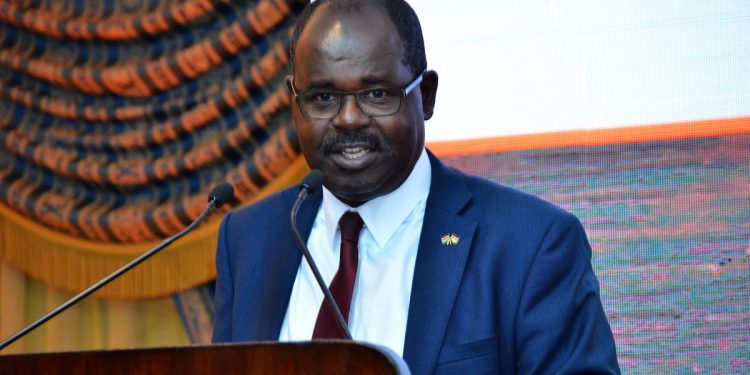The Kenya Bankers Association (KBA) through its Centre for Research on Financial Markets and Policy has today launched the agriculture financing report which reviews public sector investments and commercial lending trends to the agricultural sector in Kenya.
According to the report, funding to the agricultural sector has been faring poorly since the early 2000s. The report reads:
“We establish that from 2000 to 2015, Kenya’s public expenditure on agriculture as a percentage of total expenditure has stagnated at between three to six per cent, way below the Comprehensive African Agriculture Development Programme (CAADP).”
These findings are alarming, considering that the agricultural sector is the largest employer in the country and an “important growth catalyst for the economy” according to KBA chief executive Habil Olaka.
The report by the Centre for Research on Financial Markets and Policy aims to trigger a conversation with regards to increasing funding in the agricultural sector. This initiative comes at a time when the government is focusing on food security as part of the Big Four agenda. Moreover, the report comes amid concerns that Kenya could become reliant on food imports in the future.
The Findings
KBA’s Centre for Research on Financial Markets and Policy found that commercial lenders prefer low-risk clients such as large-scale farming companies over small holding farmers who are considered to be high-risk borrowers.
In the words of Co-op Bank’s head of cooperatives departments Christopher Mugambi, “Commercial banks find it easier to lend to cooperatives than to smallholders.”
In addition, the SMEs in the agricultural sector are undercapitalised making them less attractive to commercial lenders.
Another finding also shows that the ability to enhance commercial lending is prohibited by effective demand.
The report indicates that government spending in the agricultural sector has remained below five per cent over the past decade and a half.
“Despite the rhetoric on the importance of agriculture in Kenya, the budget allocation patterns paint a different picture,” states the report.
Other findings include low production and erratic and low growth in the agricultural sector .
The Recommendations
Agricultural economist and consultant Dr Leonard Ouko suggests bringing together smallholders into farmers’ collectives so that their chances of receiving funding can increase. In addition, he proposes that the government should work with commercial lenders to boost funding in the sector and that extension services offered to small hold farmers should be privatised.
Ouko also suggests the need for smallholders to run their farms as businesses so as to increase their chances of receiving credit from banks.
Another solution that is currently in operation is the e-Granary, a communication and payment mobile platform that aggregates inputs such as fertiliser for smallholders and helping them access credit facilities.
e-Granary is a financial inclusion solution for smallholder farmers in Africa initiated by the East Africa Farmers Federation.




